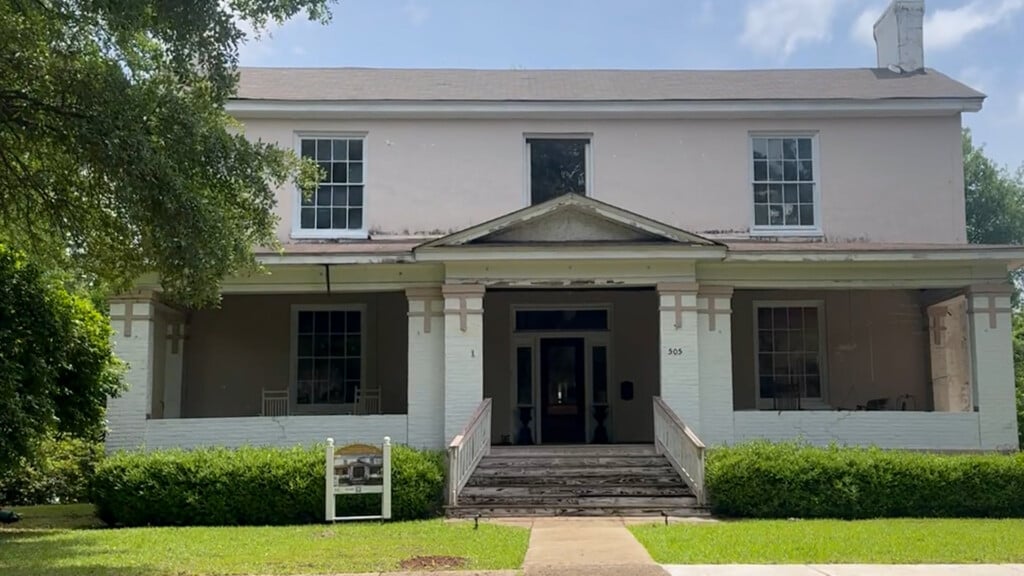Ala. Budget Ends in Veto; What Passed and What Didn’t
MONTGOMERY, Ala. (AP)- Gov. Robert Bentley has vetoed an austere general fund budget that he said would hurt the people of Alabama.
Bentley says the budget approved by lawmakers Thursday night is unworkable and will hurt the people of Alabama. He vowed to bring lawmakers back into special session this summer.
The budget cuts $200 million from state agencies after lawmakers failed to agree on tax increases or revenue.
The House of Representatives overrode Bentley’s veto, but the Senate had adjourned for the session so the action was meaningless. The veto leaves state agencies without a spending plan for fiscal year that begins Oct 1.
The action came after months of unsuccessful behind-the-scenes negotiations by legislators on revenue ideas and warnings by Bentley that the cuts would cause dramatic reductions in state services.
PRISON REFORM: Legislators, in an attempt to overhaul the state’s crowded prison system, approved sweeping changes to sentencing and probation standards. The bill, signed into law by Bentley, is aimed at easing crowding in state prisons that hold twice the number of inmates they were originally designed to hold.
CHARTER SCHOOLS : Lawmakers approved GOP-championed legislation to allow charter schools in Alabama for the first time. The bill, already signed into law, will allow for 10 new “startup” charter schools each year and unlimited conversions of existing schools.
OPEN MEETINGS : The approved bill tightened a loophole in Alabama’s Open Meetings Act that allowed councils, commissions and other public bodies to get around a requirement to conduct business in public by holding a series of small meetings with less than a quorum of members.
ALABAMA ACCOUNTABILITY ACT: Alabama lawmakers made changes to the school choice program that helps families pay for private school. It expands the yearly cap on the tax credits that fuel the scholarships from $25 million to $30 million. It would also tighten income requirements and increase reporting requirements.
NEW TWO-YEAR COLLEGE BOARD: Alabama lawmakers created a new appointed board to oversee the state’s two-year college system, stripping the authority from the state Board of Education. GOP legislators who pushed the change said the schools should be more focused on workforce development. School board members derided it as a power-grab.
MEDICAID LONG-TERM CARE: Alabama lawmakers passed a bill to establish integrated care networks to allow more Medicaid recipients to stay in their homes instead of nursing homes. Proponents said it could cut Medicaid costs by $1.5 billion between 2018 and 2028.
RIGHT TO TRY: Alabama became the latest state to approve legislation to allow terminally ill patients to use experimental drugs, biological devices and products that have passed first-phase testing by the U.S. Food and Drug Administration.
STATE AGENCY FEES: The legislation allows state agencies to request fee increases every five years to reflect changes in the Consumer Price Index.
WHAT FAILED
THE GENERAL FUND : Bentley vetoed a general fund budget that would have cut $200 million from state agencies. The governor called the budget unworkable and unacceptable. He said he will bring lawmakers back into special session sometime this summer to try again. The lack of a budget means state agencies are without a spending plan for the fiscal year that begins Oct 1.
BENTLEY’S TAX PACKAGE: Lawmakers handed Bentley a defeat as they rejected his call for $541 million in taxes including increased taxes on cigarettes, auto sales and auto rentals. However, Round 2 could be coming in an expected special session on the budget this summer.
PAYDAY LOANS: The bill would have reduced what borrowers pay when they turn to the short-term lenders. The bill sought to give borrowers more time to repay a loan, taking the window from 14 days to six months, giving them a better chance at paying it off without taking out a subsequent loan.
MARRIAGE LICENSES/GAY MARRIAGE: The bill, brought in expectation that the U.S Supreme Court would legalize gay marriage nationwide, would have done away with state-issued marriage licenses. Another bill that failed this session would have given civil immunity to judges and ministers who refuse to marry same-sex couples.
GAMBLING: A proposal to authorize a lottery and four casinos was pushed by Senate President Pro Tem Del Marsh, but did not get a floor vote. Marsh said he wants to continue the conversation on gambling during the special session.
MEDICAL MARIJUANA: The bill sought to allow people with certain medical conditions to use small amounts of marijuana. Medicinal marijuana advocates cheered when the Senate Judiciary committee passed the bill, but the victory turned out to be short-lived.
ABORTION BILLS: The bill sought to ban abortion clinics within 2,000 feet of public K-12 schools. The bill would force a Huntsville abortion clinic, one of the state’s five abortion clinics, to move or close. Another bill would have banned abortions when a fetal heartbeat can be detected, which can happen as soon as six weeks into a pregnancy.
GULF STATE PARK: The $50 million bond issue was to help build a lodge and conference center at Gulf State Park. Bentley named the bill a priority, but it sparked opposition from some north Alabama state senators.
TIM TEBOW BILL: The bill would have allowed home-school students to participate in sports and other extracurricular activities in their school district. Similar legislation has failed every year for the past decade, but made it farther this year.
ANTI-GAY DISCRIMINATION BILL: The bill sought to ban discrimination based on sexual orientation and gender identity. Protection would have applied in the areas of employment and housing. The legislation also would have protected against discrimination related to voting, financial transactions and accommodations.
EXECUTION DRUG SECRECY: The bill aimed to keep secret the suppliers of lethal injection drugs used in state executions. The proposal failed for the second consecutive session.





Leave a Reply